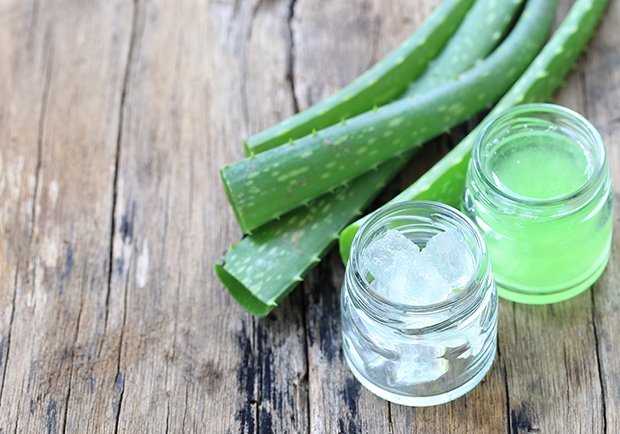The Benefits Of Ayurveda And Its History
Ayurveda is a medicinal system that has been studied and used for centuries. This ancient Indian health science is based on the knowledge of how the mind, body, and spirit work together to create balance and health. To learn more about Ayurveda, check out this blog!
What is Ayurveda?
- Ayurveda is a 5000-year-old healing system from India that uses natural therapies to treat illness. Ayurveda is based on the theory of “Vata” and “Pitta” dosha, which describe the body’s natural energy systems.
- Ayurveda is highly individualized, so each person’s treatment will be different. However, some of the benefits of ayurveda include:
- It can help improve overall health
- It can relieve pain
- It can reduce inflammation
- It can help improve mental clarity and focus
- It can improve digestion
Ayurvedic & Medicinal Plants
Owing to the fast-paced world we live in, we are getting far from nature. While our lifestyle can harm us, it is essential to know that introducing small changes in our daily life can go a long way in keeping us healthy and energetic. Therefore, the importance of Ayurveda holds in today’s life as it is based on the principle of bringing us close to nature and relying on its natural powers to cure us and keep us healthy without any side effects.
Thanks to natural ingredients and medicinal herbs, Ayurvedic medicines and products today have become a symbol of safety compared to synthetic drugs that are considered unsafe for overall health.
One way of understanding the fundamentals of Indian Ayurveda is to spend more time with nature and observe the plants and herbs. Each plant or herb has a specific quality and can be used to treat many ailments and diseases. Medicinal plants like aloe, turmeric, tulsi, pepper, elachi, and ginger are commonly used in Ayurvedic home remedies. They are considered the best aid in fighting ailments related to the throat and skin. As a rich source of nutrients, and anti-bacterial and antioxidant properties, ayurvedic herbs are non-toxic. The products or remedies made using them are often recommended for their high therapeutic value.
Treatment with herbal medicinal plants also holds a firm ground because these plants are considered safe and have no side effects. Since they are in sync with nature, they hold a more significant advantage over chemically treated products and synthetic medicines. As opposed to other drugs and medicines, Ayurvedic herbs are known to treat the disease from the root and thus aid in keeping you healthy and fit in the long run.
Apart from medicinal use, these herbs can also be used for pest control, natural dyes, and formulation of food items, teas, and perfumes, among others. If we look at various researches from across the world, a sudden spurt in cases of people turning to natural herbs for treatments and usage in everyday life has gone up significantly. Going back to the basics, people have realized the threat chemically treated products pose to their lives and are rightly adopting healthier ways of life by including Ayurveda and its principles as the mainstay of their lives.
Read More: Triphala Churna
Medicinal Plants & Their Uses
| Hindi Name | English Name | Botanical Name | Uses |
| Adusa/Vasaka | Malabar Nut | Adhatoda vasica Nees Pennel | Cough, Asthma, Bronchitis |
| Ananas | Pineapple | Ananas comosus Pennel | Sore Throat, Diabetes, Heart Disease, Obesity |
| Babool | Indian Gum | Acacia arabica Willd Pennel | Oral Care, Bleeding Gums, Wounds |
| Brahmi | Thyme leafed gratiola | Bacopa monniera Pennel Pennel | Enchances Memory, Anxiety |
| Dhaniya | Coriander | Coriandrum sativum Linn Pennel | Indigestion, Flatulence, Controls Spasmodic Pain |
| Kalmegh | Kalmegh | Andrographis paniculata Pennel | Indigestion, Acne, Diarrhea |
| Lashun | Garlic | Allium sativum Pennel | Ringworm, Dysentery, Wounds |
| Nagarmotha | Nut Grass | Cyperus rotundus Linn Pennel | Fever, Diabetes, Solar Dermatitis |
| Punarnava | Spreading Hogweed | Boerhaavia diffusa Linn Pennel | Anemia, Liver Diseases, Wounds |
| Shalparni | Shal Leafed Bush | Desmodium gangetium DC Pennel | Analgesic, Anti-Inflammatory |
| Tulsi | Holy Basil | Ocimum sactum Linn Pennel | Indigestion, Heart Diseases, Respiratory Diseases |
| Vridhadaru | Elephant Creeper | Argyreia speciosa Sweet Pennel | Diabetes, Skin Diseases, Wounds |
| Agarkasth | Eagle Wood | Aquilaria agallocha Roxb Pennel | Bed-Wetting, Incompetency of Urinary Bladder |
| Ankol | Sage leaf alangium | Alangium salvifolium Pennel | Snakebite, Scorpion Bite, Dog Bite |
| Badi Elaichi | Greater Cardamom | Amomum subulatum Pennel | Bronchitis, Asthma, Appetizer, Digestant |
| Chirchita | Prickly chaff flower | Achyranthes aspera Pennel | Indigestion, Cough, Asthma, Anemia, Jaundice |
| Elaichi | Lesser Cardamom | Elettaria cardamomum Maton Pennel | Nausea, Vomiting, Dry Cough |
| Kanghi | Country Mallow | Abutilon indicum Pennel | Facial Paralysis, Joint Disorders, Increases Strength |
| Malkagini | Staff Tree | Celastrus paniculatus Willd Pennel | Muscle Cramps, Backache, Osteoarthritis, Paralysis |
| Neem | Margosa Tree | Azadirachta Indica A. Juss Pennel | Leprosy, Eye Disorders, Bloody Nose, Intestinal Worms |
| Pyaj | Onion | Allium cepa Linn Pennel | Prostate Cancer, Esophageal, Stomach Cancer |
| Shatavari | Asparagus | Asparagus racemosus Willd Pennel | Infertility, Loss Of Libido, Threatened Miscarriage |
| Ulatkambal | Devil’s Cotton | Abroma augusta Pennel | Gynaecological Problems, Irregularity In Periods |
| Yavasa | Camel Thorn | Alhagi camelorum Pennel | Rheumatism, Vomiting, Stomachache, Constipation |
| Akarkara | Pellitory | Anacyclus pyrethrum Pennel | Toothache, Dryness Of The Mouth, Throat, Catarrh |
| Ashgandh | Winter Cherry | Withania somnifera Dunal Pennel | Stress Tolerance, Immunity, Joint Pains, Skin Sores |
| Bael | Bengal Quince | Aegle marmelos Corr. Pennel | Dysentery And Diabetes, Sunstrokes, Anti-Cancer |
| Chitvan | Leadwort | Plumbago zeylanica Linn Pennel | Arthritis, Skin Diseases, Menstrual Disorders, Obesity |
| Ghee Kunwar | Aloes | Aloe vera Tourn ex. Linn Pennel | Ulcers, Burn Injuries, Jaundice, Acne |
| Ketaki | Crepe Ginger | Costus speciosus (Koeing) Sm. Pennel | Obesity, Hyperlipidaemia, Diabetes |
| Mandukparni | Gotu Kola | Centella asiatica Urban Pennel | Sedative, Antibiotic, Detoxifier, Laxative |
| Palasha | Bastard Teak | Butea monosperma Kuntze Pennel | Complexion of Skin, Worm Infestations, Roundworm |
| Ratti | Rosary Pea | Abrus Precatorius | Joint Pains, Paralysis, Alopecia |
| Shirish | Siris Tree | Albizia lebbeck (Linn) Benth Pennel | Bronchial Asthma, |
| Bach | Sweet Flag | Acorus calamus Pennel | Flatulent Colic, Atonic Dyspepsia, Ulcers |
| Amaltas | Indian Laburnum | Cassia fistula Linn Pennel | Ulcers, Wounds |
| Ashok | Sorrowless tree | Saraca indica Pennel | Menstrual Irregularities, Uterine Stimulant |
| Bharangi | Bharangi | Clerodendron serratum Moon Pennel | Common Cold, Chronic Sinusitis, Allergic Rhinitis, |
| Chitvan | Dita | Alstonia scholaris Pennel | Skin Ulcers, Fever, Increasing Lactation |
| Guggulu | Indian Bdelium | Commiphora mukul Engl Pennel | Joint Disorders, Heart Diseases, Hypolipidaemic, |
| Kadirkasth | Cutch Tree | Acacia catechu Willd Pennel | Skin & Respiratory Problems, Oral Hygiene, Astringent |
| Meetha Vish | Monks hood | Aconitum ferox Pennel | Fever, Diuretic Action, Arthritis |
| Patha | Velvet Leaf Tree | Cissampelos pareira Linn Pennel | Ulcers, Sinuses, Skin Diseases, Poisonous Bites |
| Senna | Indian Senna | Cassia angustifolia Vahl Pennel | Laxative, Constipation, Irritable Bowel Syndrome, Weight Loss |
| Supari | Areca Nut/Betelnut | Areca catechu Linn Pennel | Obesity, Hyperlipidaemia, Diabetes, Irregular Menstruation |
| Vajradanti | Barleria | Barleria prionitis Linn Pennel | Strengthens Teeth, Fever, Catarrh |
| Amla | Indian Gooseberry | Emblica officinalis Linn Pennel | Antioxidant, Antistress, Constipation, Fever |
| Atees | Indian Ateech | Aconitum heterophyllum Wall Pennel | Fever, Respiratory |
| Bhojpatra | Himalayan Birch | Betula utilis D. Don Pennel | Wounds, Obesity |
| Dalchini | Bark Cinnamon | Cinnamomum Zeylanicum Breyn Pennel | Antibacterial, Antiseptic |
| Jimikand | Elephant yam | Amorphophallus campanulatus Pennel | Dysentery, Piles, Haemorrhoids |
| Kulanjan | Greater Galangal | Alpinia galanga Pennel | Flatulence, Dyspepsia, Vomiting, Seasickness, Catarrh |
| Mulethi | Liquorice | Glycyrrhiza glabra Linn Pennel | Digestive Disorders, Ulcers, Bronchitis |
| Pippali | Long Pepper | Piper longum Linn Pennel | Asthma, Cough, Indigestion |
| Shalai Guggal | Indian Olibanum | Boswellia serrata Roxb. Pennel | Joint Pains, Headache, Diabetes |
| Tamalpatra | Cinnamon Leaf | Cinnamomum tamala Nees Pennel | Diabetes, Digestion, Cold |
| Varun | Three Leafed Caper | Crataeva nurvala Buch-Ham Pennel | Kidney Stones, Bladder Stones |
Benefits & Importance of Medicinal Plants
Ayurvedic herbs are time tested for their health and other benefits, and the nutritional value they pack is highly recommended for their healing powers. Known to induce no side effects, they have a unique aroma and flavor, and when consumed regularly, they act as a perfect mechanism to bring about a balanced harmony between mind and body. They rejuvenate the whole system instead of focusing on one specific organ or body part.
Read More: Guduchi
Benefits of Medicinal Plants:
• They have a holistic approach and aid in proper absorption and digestion
• They are not disease-specific but act as preventive medicine that positively affects the overall health and well-being by boosting the immune system
• They are at par with allopathic medicines and are at times known to be effective in treating diseases like cancer and autoimmune diseases
• They are self-contained and nutritional. Therefore, they are non-toxic and harmless
• It deals with the overall well-being and aims to bring harmony between mind, body, and soul
• Several metabolic and chronic conditions can be treated without any side effects using Ayurvedic medicines and treatments
Ayurvedic Herbs/Spices & Their Medicinal Values
• Ayurvedic Herbs and spices such as black pepper, cinnamon, aloe, sandalwood, ginseng, red clover, burdock, bayberry, and safflower heal wounds, sores, and boils.
• To reduce fever and the production of heat caused by the condition, certain antipyretic herbs such as Chirayta, black pepper, and sandalwood are recommended
• Sandalwood and Cinnamon are great astringents apart from being aromatic. Sandalwood is mainly used in arresting the discharge of blood, mucus, etc.
• Ajwain, Amalaki, Aswath, etc., serve as antacids and are recommended for healthy gastric acid flow and proper digestion
• Herbs like Cardamom and Coriander are renowned for their delicious qualities. Other aromatic herbs such as peppermint, cloves, and turmeric add a pleasant aroma to the food, thereby increasing the taste of the meal
• Herbs like Aloe, Sandalwood, Turmeric, Sheetraj Hindi, and Khare Khaskhas are commonly used as antiseptics and have very high medicinal values
Camomile, Basil, Cardamom, Ginger, Peppermint, and Coriander promote blood circulation in the body and keep the heart healthy.
Read More: Gudmar
Ayurveda Benefits
Ayurveda is an ancient and holistic Indian system of medicine that has been used to treat a variety of health problems for centuries. The benefits of ayurveda include improving overall well-being, reducing stress and anxiety, boosting energy levels, and improving joint health.
Ayurveda is based on the theory of three humors (doshas), which are believed to be responsible for our health and wellbeing. Ayurvedic treatments aim to balance out these humors using dietary changes and herbs.
There are many different types of ayurveda, each with its own specific benefits. If you’re looking for a more comprehensive treatment plan, ayurveda may be a good option for you.
History of Ayurveda
Ayurveda is one of the oldest medical systems in the world and has been in use for over 4,000 years. Ayurveda is based on the principles of nature and is considered a holistic system of medicine. Ayurveda has many benefits that include:
-The ability to regulate your body’s temperature
-The ability to improve your digestion and immune system
-The prevention and treatment of diseases
Conclusion
The benefits of ayurveda are many and varied, but at its heart is the idea that health and well-being can be achieved through a balance of physical, mental, and spiritual elements. Ayurveda has been practiced for centuries in India, and its principles continue to be used today to promote better health.
Read More about some Instresting and trending Topics for related to your Health
- The benefits of Aliv Seeds or Halim Seeds
- What Is A Keto Diet?
- Health Benefits of Jaggery
- What are Health Benefits of Yogurt Diet?
- Health Benefits of Chia Seeds
- What Is onion and Health Benefits of Onion Seed
- Boost Hair Growth with some easy task
- What Is Panchakarma, And Why Would My Health Want To Try It?
- What Is Bilwadi Churna? And How Can This Ayurvedic Herbal Powder Help You?
- Why Exercise Cycles Are Important For Our Body’s Health
- Surya Namaskar: What It Is And A Step-by-Step Guide
- 3 Yoga Pose that Help Reduce Belly Fat
- 10 Reasons Why Nature Is Really Important In Our Life
- Health Benefits of Ashwagandha and Ashwagandha Churn
- Benefits Of Lotus Seeds: The Healthier Alternative You May Not Know About
- Drinking Aloe vera juice has many benefits.
- Benefits Of Cucumber And Advantages And Disadvantages Of Cucumber by A Blog
- The Benefits Of Ayurveda And Its History



